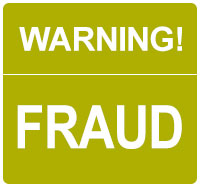Commercial debt collection scam using the names Aman Cheng and Sumitronics Electronics
Date First Reported: February 2017
Primary Name Associated: Aman Cheng
Description of Potential Fraud:

Two Ontario firms have notified us that they received an email from the purported Aman Cheng of Sumitronics Electronics looking to retain them with regards to a commercial debt collection.
This appears to be a bad cheque scam that presents as legal matter (with a real company likely being impersonated) requiring the assistance of a lawyer. In this scam lawyers will be duped into wiring real funds from their trust accounts after depositing a fake cheque received as payment from the purchaser (who is part of the fraud).
See our Confirmed Fraud Page for more of an explanation of how these frauds work and other names associated with it , and our Fraud Fact Sheet for a list the red flags of a bogus legal matter that is really a fraud.
Here is the email received by the lawyers after the initial contact:
From: Aman Cheng [mailto:[email protected]]
Sent: February-16-17 8:57 AM
To:
Subject:
Dear Counsel,
We are having a business supply pending payment within your jurisdiction. I would want you to look into the subject matter and advice on what to do.
Please let us know your standard retainer fee to enable us forward the sales agreement for conflict check order.
You can contact me via my official Email: [email protected]
Yours Sincerely,
Mr. Aman Cheng (Director)
SUMITRONICS ELECTRONICS HONG KONG LTD.
Address : Unit 803A, 8th floor, East Ocean Centre, 98 Granville Road, Tsim Sha Tsui East, Kowloon, Hong Kong.
TEL:852-234-0110/FAX: 852-2797-8076
Email: [email protected] / [email protected]
How to Handle a Real or Suspected Fraud
If you have been targeted by any of these frauds, please forward any of the emails and supporting documents that you have received to [email protected]. We use this information for the warnings we post on AvoidAClaim. We do not disclose the names of firms that have provided us with information.
Ontario Lawyers - Call LAWPRO
If you are an Ontario lawyer acting on a matter that you suspect might be a fraud, call LAWPRO at 1-800-410-1013 (416-598-5899). One of our Fraud Team members will talk you through the common fraud scenarios we are seeing and help you spot red flags that may indicate you are being duped. This will help you ask appropriate questions of your client to determine if the matter is legitimate or not. If the matter you are acting on turns out to be a fraud, we will work with you to prevent the fraud and minimize potential claims costs.
What can you do to help put a stop to the fraud attempt?
You can simply stop replying to the fraudster’s emails or inform them that you suspect fraud and will not act on the matter. You can report the fraudsters’ email addresses to the email hosting company. If you have a fraudulent cheque you can destroy it or send it to the fraud department of the financial institution it is drawn upon. In Canada, you can report the fraud to the Canadian Anti-Fraud Centre.
We are often asked if it is worthwhile to report the fraud attempt to the police in the hopes of helping catch the fraudsters. You can certainly report the fraud to your local or federal law enforcement agencies, but unfortunately it is often difficult, expensive and time consuming for them to attempt to shut down these online fraud perpetrators (though there are some successes).
What if the fraud has been successful?
If you have been successfully duped, please immediately notify LAWPRO as there may be a claim against you. See the LAWPRO website for instructions on how to report a claim.
For more immediate updates on fraud and claims prevention, subscribe to the email or RSS feed updates from LAWPRO’s AvoidAClaim blog.
Fraud Fact Sheet
More fraud prevention information and resources are available on the practicePRO Fraud page, including the Fraud Fact Sheet, a handy reference for lawyers and law firm staff that describes the common frauds and the red flags that can help identify them. To proactively prevent trust account shortfalls and malpractice claims, LAWPRO encourages firms to teach their lawyers and staff about fraud and how to recognize fraud attempts.

Leave a Reply